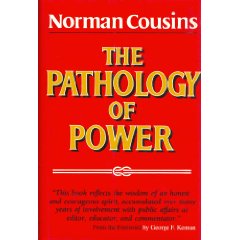It merits comment that today, as I read and reviewed the book, which documents over 725 US bases around the world, many of them secret, there is a public discussion in which the Pentagon is acknowledging only 400 or so bases to exist.
There is a considerable amount of short-hand history in the book that can be skimmed rapidly–from the roots of American militarism in the Spanish-American war, to the non-partisan efforts of both Clinton and Bush fils to establish a military base structure in Arabia and in Central Asia.
The author provides a number of worth-while commentaries on war crimes and associations with genocidal acts and repressive dictators on the part of Henry Kissinger, Wes Clark, James Baker, Dick Cheney, and other mostly Republican “wise men” associated with the oil companies of America.
On pages 100-101 he draws on a number of authoritative sources to note that the casualty rate for the first Gulf War was close to 31% (THIRTY-ONE PERCENT) due to the exposure of the 696,778 veterans serving there being exposed to depleted uranium rounds and other toxic conditions *of our own making*, with 262,586 of these consequently falling ill and being *officially* declared to be disabled by the Veteran's Administration. I have no doubt that there will be an additional 100,000 or more disabled veteran's coming out of Gulf War II. These disabilities are multi-generational. Veterans disabled in the Gulf have higher possibilities of spawning children with deformities “including missing eyes, blood infections, respiratory problems, and fused fingers.”
The author excels, I believe, in bringing together in one book the combined costs and threats to the American Republic of a military that on the one hand is creating a global empire that is very costly to the US taxpayer and very threatening to everyone else; and on the other hand, is creating anti-democratic conditions within the United States, to include frequent and expensive preparations for dealing with “civilian disorder conditions” here at home.
The author also excels in discussing both the collapse of US diplomacy (today the Pentagon manages 93% of the international relations budget, the Department of State just 7%), and the rise of private military companies that he carefully lists on page 140–Halliburton, Kellogg Brown and Root, Vinnell, Military Professional Resources, DynCorp, Science Applications Corporation, BDM (now TRW), Armor Holdings, Cubic, DFI, International Charter. There are more–they are all “out of control” in terms of not being subject to Congressional oversight, military justice and discipline, or taxpayer loyalty.
In the middle of the book the author examines the change in the roles of the military from its World War II and post-Cold War missions to five new missions that have not been cleared with the American people: 1) imperial policing; 2) global eavesdropping; 3) control of petroleum fields and channels; 4) enrichment of the military-industrial complex; and 5) comfortable maintenance of the legionnaires in subsidized compounds around the world, such that numbers could be justified that could never be maintained in garrison within the USA.
On page 164 the author notes most interestingly that China is among the greatest purchasers of fiber-optic cable in the world (thus negating much of NSA's 1970's capabilities), and on page 165 he discusses, with appropriate footnotes, how the US, UK, Canada, and Australia are circumventing the prohibitions against monitoring their own people by trading off–the Canadians monitoring British politicians for the British, the British monitoring US politicians, etcetera.
Among the strongest sections of the book is the detailed discussion of America's love affair with ruthless dictators (and Muslim dictators at that) in Central Asia, all in pursuit of cheap oil our privilege elite think they can control. Of special interest to me is the author's delicate dissection of the vulnerability of any Central Asian energy strategy, and his enumeration of all the vulnerabilities that our elite are glossing over or ignoring.
Summing it all up, the author attributes US militarism and the Bush fils “doctrine” to “oil, Israel, and domestic politics”, and he bluntly condemns it all as “irrational in terms of any cost-benefit analysis.” Quoting Stanley Hoffmann, an acclaimed international relations theorist, he condemns Bush's “strategy” (as do I) as “breathtakingly unrealistic”, as “morally reckless”, and as “eerily reminiscent of the disastrously wishful thinking of the Vietnam War.”
This is a fine book. Read widely enough, it has the potential for constructively informing the popular debate that is emerging despite all efforts by the Administration and its corporate cronies to suppress discussion [e.g. MoveOn.org's $2M in cash for a Superbowl ad has been rejected by CBS on the grounds of being too controversial]. Despite a few rough edges, I believe the author represents a body of informed scholarly and practical opinion such as I have tried to honor with my many non-fiction reviews, and I hope that everyone who reads this review decides to buy the book.











